Harper, Donna Sullivan.
Not so simple : the Simple stories by Langston Hughes / Donna Akiba Sullivan Harper.
p. cm.
Includes bibliographical references and index.
ISBN 0-8262-1088-3
1. Afro-American men in literature. 2. Afro-Americans in literature. 3. Simple (Fictitious character) I. Hughes, Langston, 1902-1967. II. Title.
PS3515.U274Z645 1995
813.52dc20
For permission to reprint copyrighted material, see the last printed page of the book.
Acknowledgments
WHO WOULD EVER HAVE IMAGINED that a student would take a required assignment for Freshman Composition and turn it into a career? That was my experience, thanks to the inspired teaching of Jessie Lemon Brown of Hampton Institutenow professor emeritus of Hampton University. All acknowledgments for my own writing about Langston Hughes must start with her. Of course, I also thank Langston Hughes for writing such magnificent, rich, and endlessly entertaining works.
I am also grateful to my teachers and my students at Oberlin College, where I tested my first theories on Hughes and aesthetics. I am especially grateful to my mentor and now colleague, Calvin C. Hernton, and to the students who were brave enough to enroll in my Langston Hughes and the Black Aesthetic course. Of those students, special thanks go to Sylvia Gaston Hamilton for her sociological considerations of Hughess works.
I am indebted to the meticulous readings of my doctoral dissertation by my committee, Robert Wheeler, Elizabeth Stevenson, and particularly Peter Dowell. Their suggestions and criticisms led to further investigations. My colleague and friend Robert Higgins also helped my work, and he introduced me to Griffith J. Davis, who was an angel on my shoulder during the lengthy process of completing the dissertation. Our friend Griff has now passed on, but my thanks go to Bob for that crucial introduction.
The networking of professional life includes many persons who have played a role in helping to take me from a finished doctoral dissertation to a finished book. Ron Baxter Miller introduced me to his editor, Beverly Jarrett. That connection was vital. Ron has continued to encourage and nurture my scholarship. Beverly has been marvelously patient with me and has never wavered in her supportfor the merit of this study. Arnold Rampersad has been a scholar and a friend, assisting both personally and professionally, with everything from his brilliant biography of Hughes to his kind support, recommendations, and advice. The book would never have happened without these three people. Thank you.
I would probably never have met Arnold, had not Henry Morgan and Henry Harder of Missouri Southern College planned and hosted the first Langston Hughes Study Conference in Joplin, Missouri, March 13-14, 1981. Thanks to the Danforth Foundation, I was permitted to convert a dissertation stipend into a travel grant, which enabled me to sit at the feet of the giants in Hughes scholarship: the late Richard Barksdale, the late Therman B. ODaniel, the late George H. Bass, and living legend Arnold Rampersad. Established scholars, budding scholars, college professors, public school teachers, performing artists, and insightful laypeople all convergedsome on program, others in the audience. I shall always be indebted to the Danforth Foundation and to Henry Harder and Henry Morgan for creating that landmark conference. The reverberations continue andI hopewill never cease.
My students at Spelman College, who have kindly subjected themselves to The Best of Simple in many of my classes, have opened my eyes to wonderful new insights. Particular thanks to the students who took the Langston Hughes Seminar, and, among those, special thanks to Tayari Jones, Laura Pearl Morrison, Tacita Mikel, and Gina King. My book discussion group, consisting of women from Hillside Presbyterian Church and Temple Sinai, also shared ideas and allowed me to test my theories. Thank you Tish Wilson, Lelia Crawford, Joanne Nurss, Ava Johnson, Roz Hosenball, Barbara Katinsky, Susan Golden, Millie Bailey, and Fran Zuspan, Emma Stanford, Elsie Heyman, and Barbara Schaffer. Another church member who reads avidly but does not attend our book discussions, Al Pride Jr., brought to my attention the new Jesse B. Semple in the Derrick Bell allegory and has offered support and encouragement. Thank you, Al.
For the actual research I am deeply grateful, first of all, to the Faculty Resource Network at New York University, whose summer scholar in residence opportunity in 1991 restored my confidence in my own intellect. (Teaching full-time can do funny things to a persons brain.) The Faculty Resource Network certainly recharged my mental battery and gave me new confidence in my ability toseclude myself for a while and concentrate in June 1991. Particular thanks to James W. Tuttleton, my faculty host, and to the staff in the English Department. I want Leslie Berlowitz and staff to know how valuable their program is. I would like to thank Spelmans former provost, Ruth Simmons, for hearing my anguish and for providing relief. My thanks, also, to all parties connected with that program.
In the summer of 1992, a grant from the Coca-Cola Foundation provided funds for me to return to Yale University for a full month of research in the excellent James Weldon Johnson Collection in the Beinecke Rare Book and Manuscript Library. The staff in the Beinecke are cheerful, knowledgeable, patient, and helpful. This book absolutely depended upon that collection and that staff. What a joy to have dependable and pleasant staff to make that research as easy and convenient as possible. Yale University is also very generous in its support of computer-aided scholarship. My fingers would never have survived a month of research without the use of the laptop (usually no. 5) in the Beinecke and then the facilities in Yales Computer Center. If only all universities supported scholarship so graciously. My thanks to Yale. I am grateful to Coca-Cola for financing that month of study. I would like to thank Spelmans current provost, Glenda Price, and her assistant, Virginia Flo Roberts, for keeping me informed of these opportunities and for supporting me.
The people of New Haven, Connecticutin particular my adopted church home of Bethelhelped to make my visits there quite pleasant. My landlady and friend, Sheila Brent, provided a room for rent, but she also provided hospitality. My thanks to John Hanna, for alerting me to Sheila and to Bethel. Thanks also go to Tisch Jones, for introducing me to John Hanna and for her lasting friendship and encouragement.
My Spelman College family has been tremendously understanding, supportive, and helpful. Thanks to President Johnnetta B. Cole, former provost Ruth Simmons, current provost Glenda Price, former chairperson June Aldridge and current chairperson Anne B. Warner, and to all my colleagues who covered the classes while I was granted a year of release from teaching in 1992-1993 so that I could devote attention to this work. I would like to thank my colleagues in other departments who have been tremendously nurturing and enthusiastic as I journeyed through this writing process. Particular thanks to Harry LeFever, who provided me with texts concerning participantobservationa specific aspect of sociology that had grown rusty since I studied at Oberlin with Kiyoshi Ikeda. Blessings and gratitude to my Spelman family for prayer support during the illnesses and deaths in my family while the writing and revisions continued. Particular thanks to Lois Moreland, Zadie Long, Yvette Williams Higgins, Candace Raven, Jane Najmuddin Smith, Geneva H. Baxter, Pushpa Parekh, Tina and Clarence Johnson, Delores Stephens, Sharifa Saa, Ray Grant, Rhoda Martin Hendrickson, Madeline Picciotto, Kris McDermott, Shirley Toland, Gloria Wade-Gayles, Jean Billinglea-Brown, Beverly Guy-Sheftall, Marika Visvesvara, Siga Jagne, Judy Gebre-Hiwet, Dalila de Sousa Sheppard, Ada Jackson, Gwen Billingslea, Cynthia Spence, and Tina Sizemore.

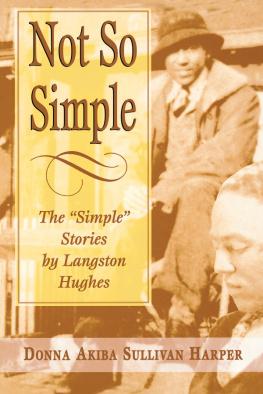
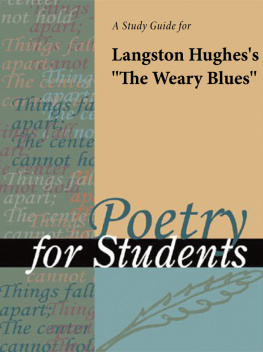


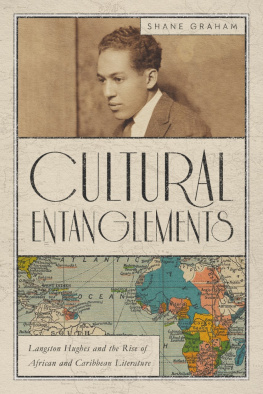
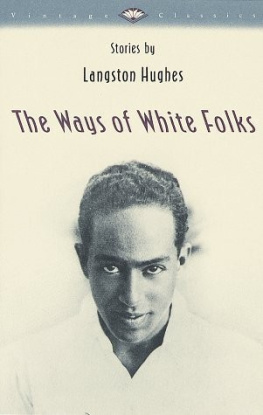
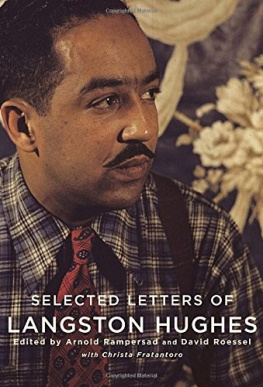

 This paper meets the requirements of the American National Standard for Permanence of Paper for Printed Library Materials, Z39.48, 1984.
This paper meets the requirements of the American National Standard for Permanence of Paper for Printed Library Materials, Z39.48, 1984.